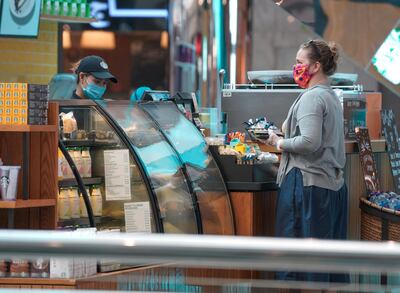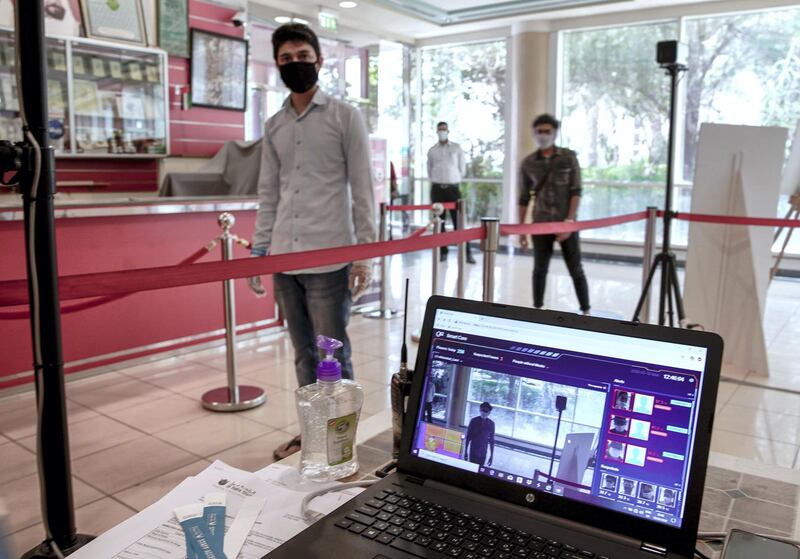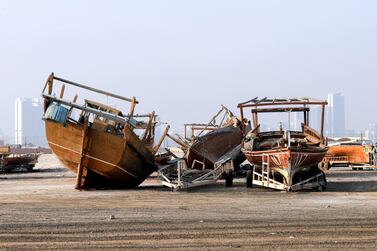Since the arrival of the Covid-19 virus in the Emirates, I have been impressed by the government’s reaction. Mass testing continues and already over 4 million tests have been carried out, equivalent to around 40 per cent of the population.
The dispatch of assistance to dozens of countries overseas, the rapid devotion of attention to scientific research to develop a vaccine – all this reflects positively on the country’s leadership. We will, I hope, see the benefits of that as shops and offices reopen and airline travel resumes.
I do though have one worry. Despite weeks of lockdown and messaging on the need for social distancing, there is evidence that the new rules have not got through to everyone.
One example is the way in which malls in the capital interpret current restrictions on access in different ways.
In the pre-Covid-19 era, "The Before Times", it was easy. You just turned up, found some parking and wandered in. Not now, though. First, they were closed entirely. Then, a few weeks ago, as the first phase of loosening the lockdown was being rolled out, the rule was that people over the age of 60 would not be permitted to enter malls. People like me would need some form of ID that suggested we were younger than our real age. Though that cut-off point has now been extended to 70, I joked with a friend, who has even more years under his belt than I, that when we were under 18 we faced the problem of how to get some form of identity suggesting we were older and now it is the other way around.
Over the last few days, hearing of potential further relaxation of the age limits, I have visited four malls in the capital. Accompanying my family, I hasten to add. I am not myself a great fan of malls, even in midsummer.
At one I was politely refused entry, but was allowed to sit in an air-conditioned area by the door to wait for my family.
At a second, I received scarcely a glance from the security guards as I wandered in and went about my business. It was the same at a third. Perhaps the rules have been relaxed, I thought.
At the fourth, I strolled unchallenged again through the door. Fifteen minutes later, as I was having a coffee, I was approached by three polite young Emirati volunteers who asked for my ID. I told them my age, and they said that I shouldn’t really be there. They didn’t tell me to leave, but asked through which door I had entered the mall, and if I had been checked. The fault, they said, was not mine but that of the mall. They went their way and I went mine.

Some more clarity about the changing regulations of the lockdown would be helpful, not just in terms of access to malls but in other areas too.
In the malls I visited, each shop had a sticker in the window saying how many people were allowed inside. In one, the numbers were rather small and, if the guidance was followed, social distancing would have been perfectly adequate.
One coffee shop though had more than double the number of recommended people inside. Who here, I wondered, was enforcing the guidelines?
My shopping experiences are not simply confined to malls. Earlier this week, I needed to buy some printer cartridges for my computer. A shop in mall number four couldn't help but recommended me to a little emporium in an Abu Dhabi backstreet. That offered no guidance as to the number of people allowed to enter, but there were only a couple of other customers so in I went.
Before I had completed my purchase, others had entered and the shop was crowded. Trying to leave, I asked people to move aside to let me pass, but no one was prepared to step out into the street for a moment. So I literally had to push between people to escape.
That was not the most pleasant experience I have had over the last few months.
Perhaps there is a need for a three-pronged campaign to make people more aware of the social distancing guidelines that we now all need to observe. First, educate the public at large. Second, tell shopowners that they need to limit the number of customers allowed in. And third, I suspect, is the need for the police and municipality officials to introduce regular foot patrols to remind shopowners in malls and elsewhere that if they allow the rules to be broken, there will be penalties.
Without that, I fear outbreaks of Covid-19 will continue, undoing the good work that most of us have done to contribute to stamping out the disease.
Peter Hellyer is a consultant specialising in the UAE's history and culture






